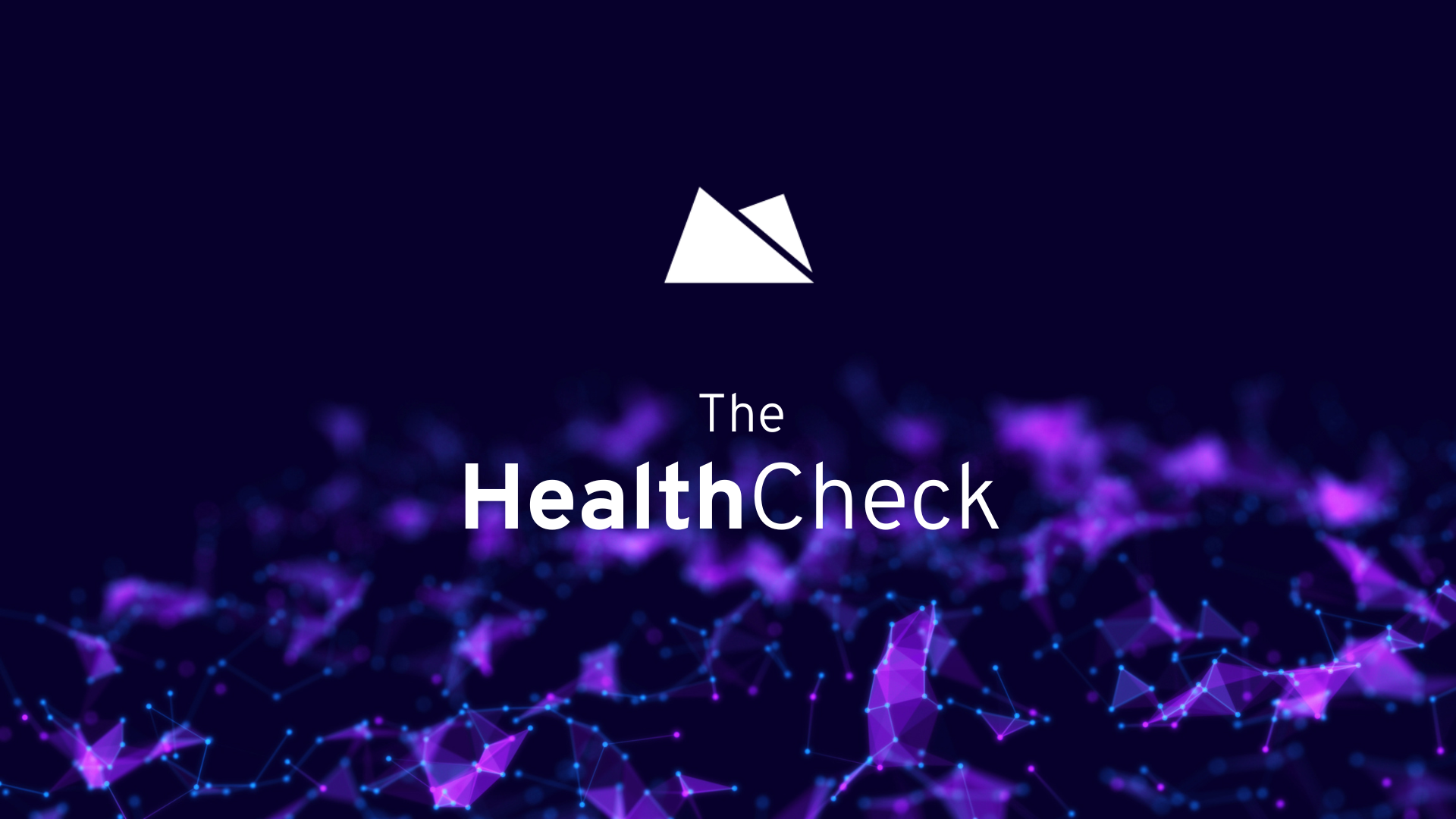
The healthtech industry is constantly evolving, with exciting developments each and every day. From new technologies and discoveries to emerging industry trends, and their direct impact on the NHS and its much-needed improvement — we’re across what’s revolutionising the ways digital transformation specialists and healthcare professionals work.
To help keep you in the loop and up to date with the latest news, we’re introducing our regular compilation of trends and insights impacting our sector.
So — without further ado, please welcome the first edition of The Health Check, our brand-new, quarterly blog.

NHS workers need functional tech
The BT Health Report 2023 found almost half of its NHS staff respondents considered digital technology a source of stress — highlighting the urgent need for functional and user-friendly systems.
Meanwhile, NHS England reports that only 20% of NHS organisations are considered digitally mature, which exacerbates the problem and presents significant challenges for the implementation of successful digital transformation projects. To move towards a digital future, obsolete or non-intuitive systems must be removed and replaced with user-friendly alternatives.
As a business that specialises in supporting digital transformation projects, we see every day how old and inefficient technology can not only risk damaging the relationship between provider and patient but also prevents organisations from achieving full digital maturity. If Trusts are to achieve their digital transformation goals, the right tech has to be in place — so we hope NHS workers are soon equipped with the functional and intuitive technology needed to deliver services. This includes prioritising the digitisation of physical medical records, and implementing EDMS platforms that integrate seamlessly with other software.

Generative AI could accelerate a technology-powered healthcare revolution
Artificial intelligence (AI) is increasingly being discussed as a tool with the potential to accelerate a technology-powered healthcare revolution, as advances in generative AI open up new possibilities for healthcare to be delivered in more effective ways.
This has recently been seen in the surgical realm, where new digital technologies are enabling surgeons to “virtually scrub in” to operating rooms and share knowledge with peers across the globe. This is the ethos behind Proximie, a start-up founded by surgeon Nadine Hachach-Haram, who has videoed more than 20,000 procedures to create a new digital medical resource. Generative AI is used to provide data-rich insights on surgical procedures, which can then be utilised to inform best practices — helping to improve patient outcomes and save money.
Given the overstretched medical staff and budgets of the NHS, a productivity revolution powered by AI can only be a good thing. However, with the accumulation of large amounts of sensitive data comes privacy concerns so a cautious approach is needed. Plus, neither generative nor predictive AI, which uses algorithms and machine learning to forecast needs and trends, could hope to solve every single issue facing the sector. At what point will it become far too costly, particularly in terms of developing skill sets to maintain such tech, when weighed against the benefits it actually realises?

Digital health platforms could enhance the lives of Parkinson’s patients
Individuals with Parkinson’s disease (PD) have been recognised as prime candidates for digital health adoption.
This follows a study conducted by Dr Ingrid Lofgren at the University of Rhode Island, which engaged 20 Parkinson’s disease patient-caregiver pairs. The study concluded that people with this condition (and their carers) are ideal candidates for using digital health platforms because of their “[...] decreased mobility, lack of transportation, the need for visual assessment by their healthcare team, and informal caregivers to be present at health appointments”.
This highlights the need for alternative and more accessible methods of care — and digital health platforms offer a valuable solution as they are capable of delivering personalised care, regardless of location. This enables patients and caregivers to easily access key information and cut down medical expenses – this is a great example of how technology can be leveraged to transform healthcare for the better.

Climate change poses risk to healthcare infrastructure
Although many of us feel the UK hasn’t experienced a ‘real summer’ this year, dangerously high temperatures are predicted to hit the country in the future.
According to recent research by the Financial Times, a third of England’s healthcare facilities are at risk from heatwaves by 2050 — with facilities in London at particular risk due to its location and lack of green spaces to reduce heat.
Concerns regarding fluctuating temperatures have been voiced already by the Climate Change Committee (CCC), which warns the government about the slow pace of progress in preparing healthcare facilities for heatwaves, highlighting the absence of a policy framework for managing overheating in buildings.
Despite the NHS publishing a net zero building standard that aims to avoid infrastructure overheating, little progress has been made — making these recent research findings highly concerning. We look forward to monitoring the situation. In the meantime, as the NHS commits to delivering a net zero health service by 2045, Mizaic will continue to support Trusts with the management and digitisation of physical medical records, which in turn eliminates paper usage and storage facilities (not forgetting the heating, lighting and staffing needed to keep them open), and significantly reduces transportation requirements.

HBR report reveals data-driven approach to healthcare creates new opportunities for patients and doctors
Earlier this year, for its Innovation in Data-Driven Health Care research report, Havard Business Review Analytic Services conducted a global survey of 757 members of the Havard Business Review audience who work in a healthcare industry or a healthcare-related industry.
The survey revealed that 94% of respondents agree that data-driven healthcare creates new opportunities for patients and doctors to benefit from more personalised healthcare approaches — indicating the leading role data can play in healthcare and ability to enable faster clinical decisions, improve treatment and hospital workflows. The survey also highlights that 43% of respondents believe one of the greatest inhibitors of becoming more data driven is disconnected or incompatible systems/data, which underlines the need for technology that is easily integratable.
We recognise just how useful data-driven insights are. We’re also all too aware of the importance of this data being presented and accessed in a way that enables healthcare professionals to extract maximum value from it — underscoring the leading role that EDMS platforms can play in helping Trusts embrace a data-driven approach to healthcare.
Get in touch
If you’d like to be the first to receive the latest industry news and updates, follow us on Twitter or Linkedin.
In the meantime, if you’d like to know more about who we are, or our leading EDMS platform, get in touch with our team.
Related posts

guide
The Challenge of Managing Access Requests in NHS Trusts
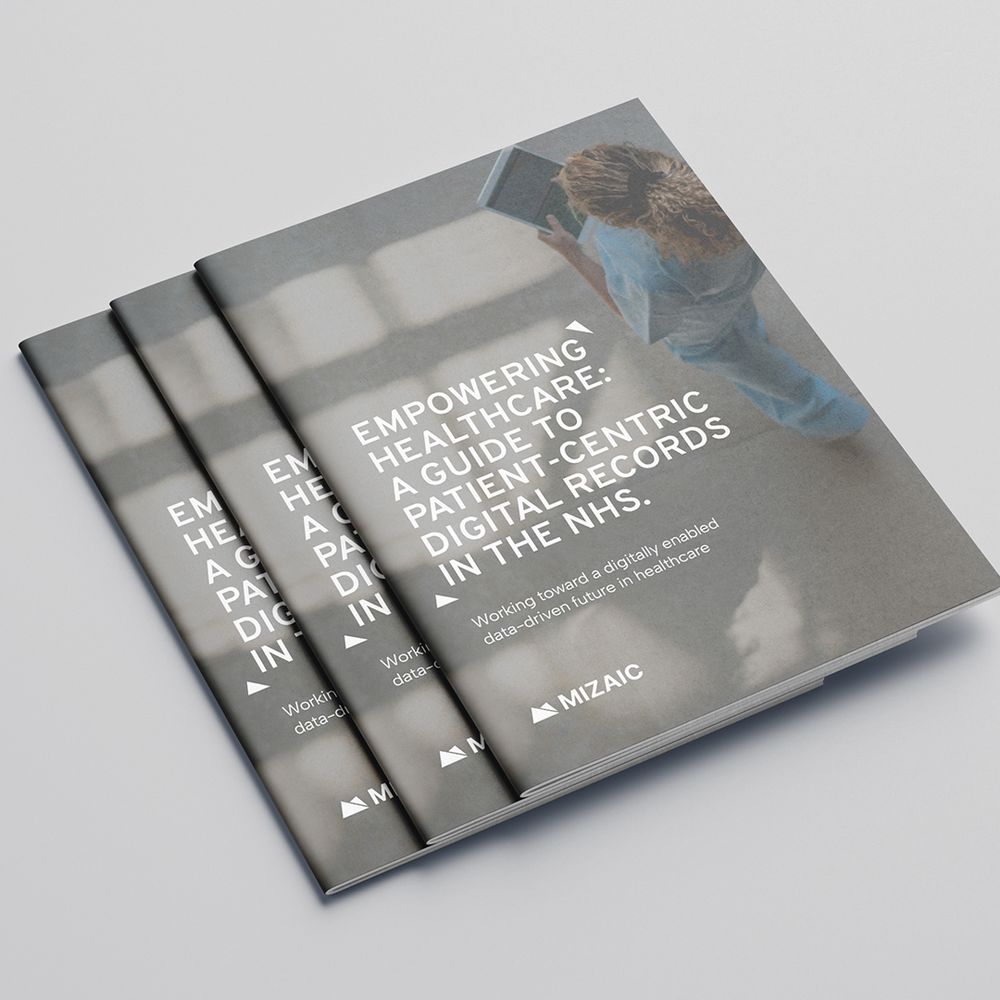
guide
Empowering healthcare: A guide to patient-centric digital records in the NHS
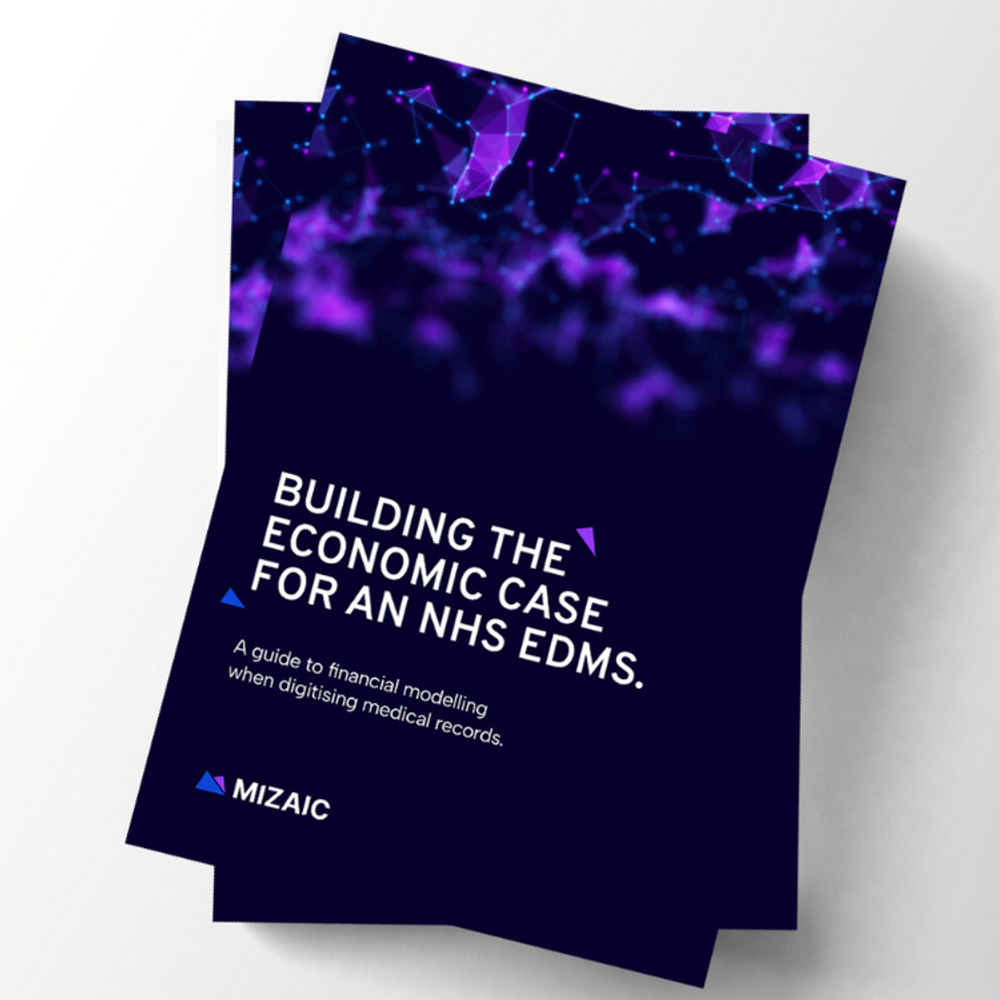
guide
Building the economic case for an NHS EDMS guide
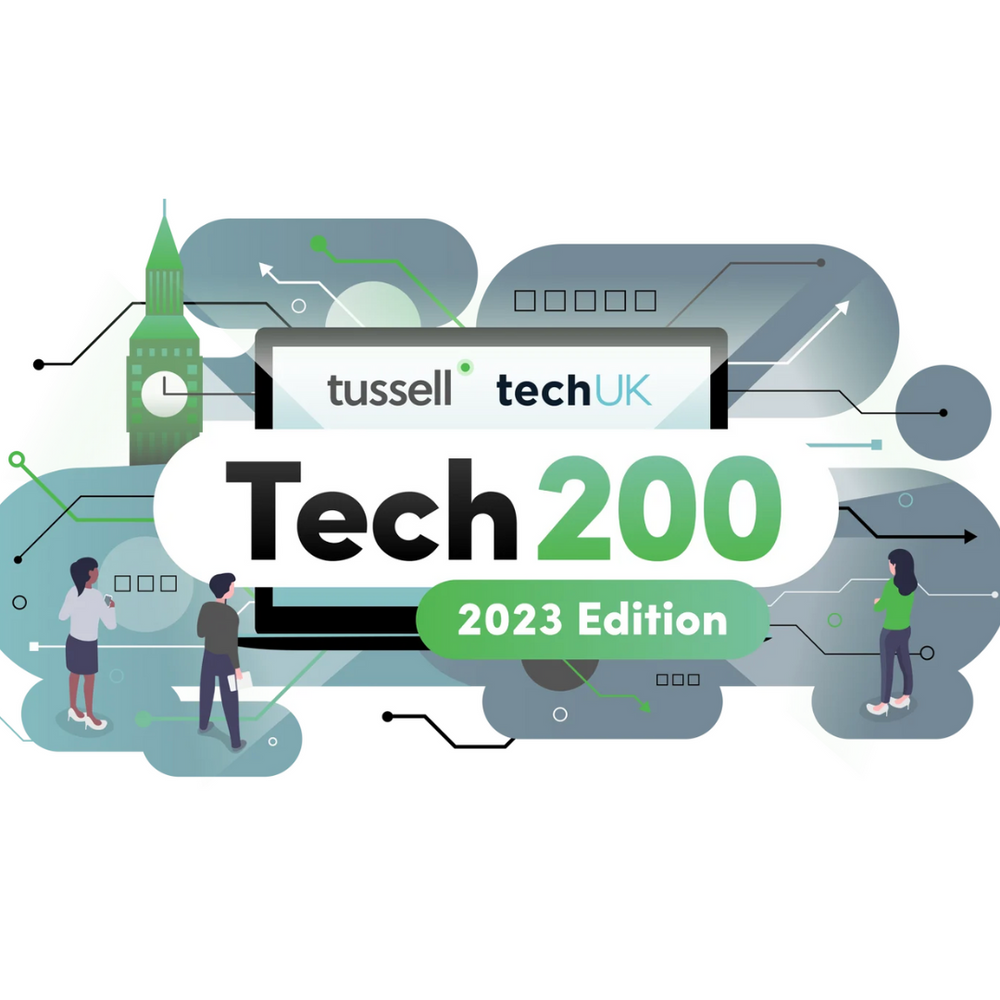
news
We’ve won 17th place in the Tech200 Awards!
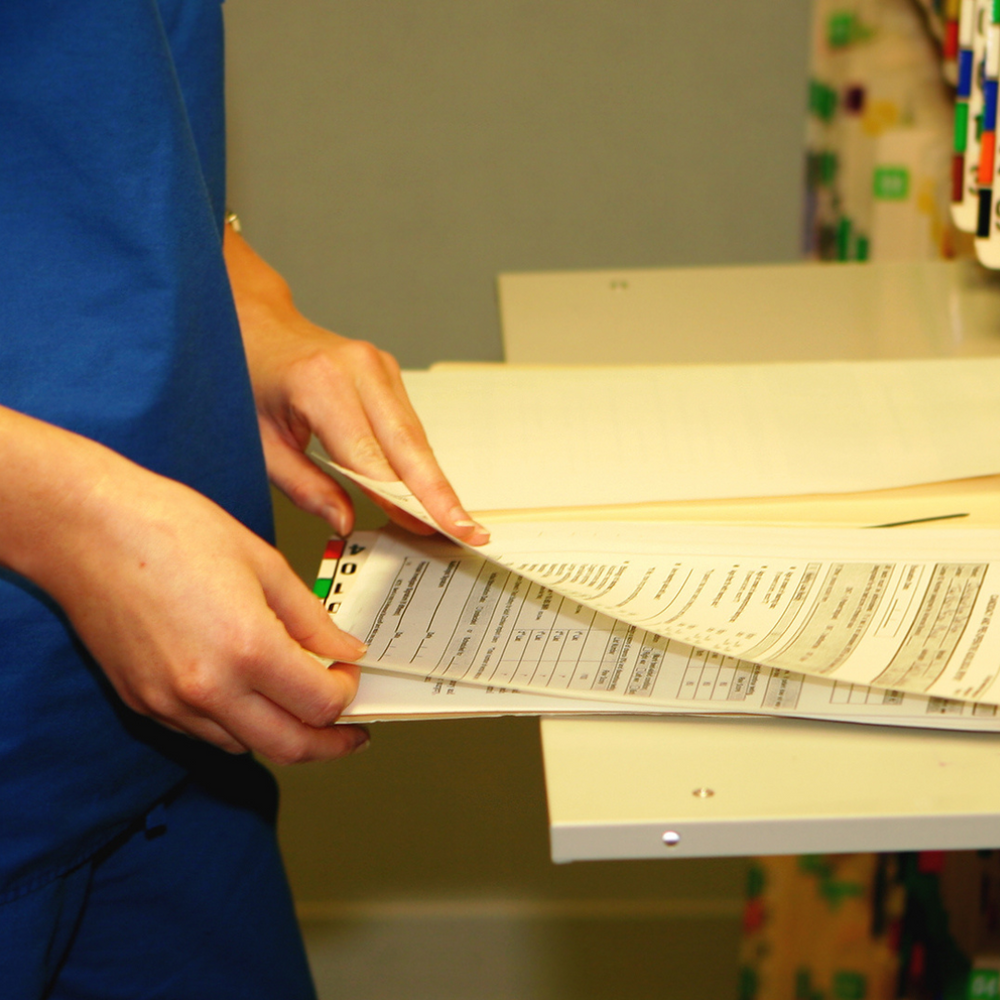
case study
Helping Northumbria Healthcare NHS Foundation Trust digitise 1m+ patient records
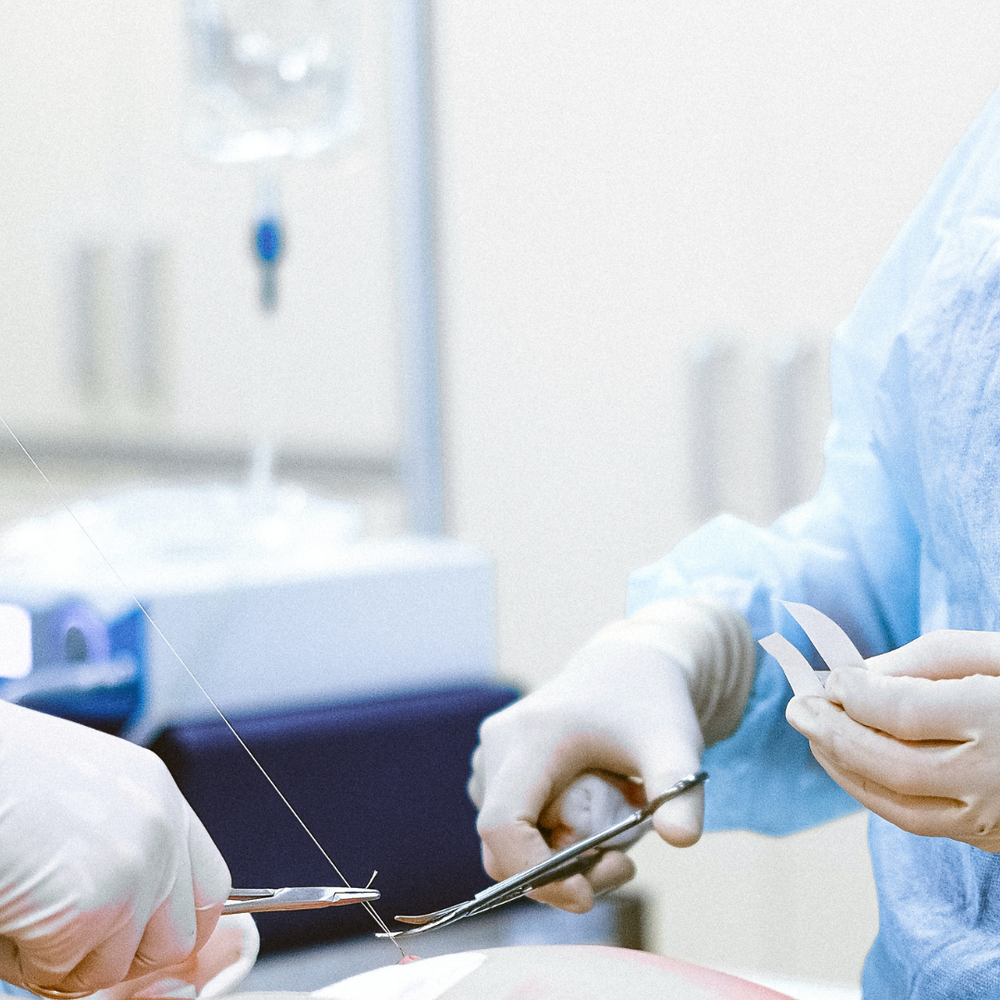
case study
Barnsley Hospital achieves digital excellence with partners Mizaic, System C and Iron Mountain

case study
Hillingdon Hospitals NHS Foundation Trust transforms healthcare infrastructure

case study
Helping Northampton General Hospital NHS Trust digitise 200,000+ medical records

case study
London North West University Healthcare NHS Trust celebrates 170,000+ digitsed records

